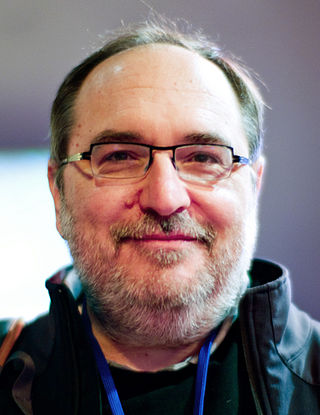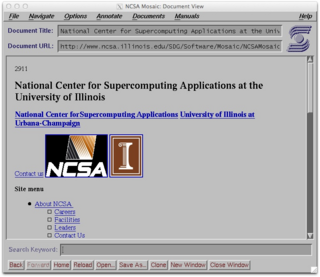Tristan Louis | |
|---|---|
 Tristan Louis, 2014 | |
| Born | February 28, 1971 Digne-les-Bains, France |
| Occupation | Technology entrepreneur |
Tristan Louis (born February 28, 1971) is a French-born American author, entrepreneur and internet activist.
Tristan Louis | |
|---|---|
 Tristan Louis, 2014 | |
| Born | February 28, 1971 Digne-les-Bains, France |
| Occupation | Technology entrepreneur |
Tristan Louis (born February 28, 1971) is a French-born American author, entrepreneur and internet activist.
Louis was born in Digne-les-Bains, Alpes-de-Haute-Provence. In 1994 and 1995, as publisher of iWorld, part of the Mecklermedia group of Internet online media companies, he first became involved in online politics on Usenet, particularly the newsgroup alt.internet.media-coverage, during debate over the Communications Decency Act and activism against it. In a joint effort with the EFF and the Voters Telecommunications Watch, iWorld and Mecklermedia publicly endorsed a national day of protest; turning the background of web pages around the world to black. The protest received national news coverage and was a catalyst in the planning for a lawsuit (Reno v. American Civil Liberties Union) which went to the United States Supreme Court and reaffirmed First Amendment protection for Internet publishers.
After leaving iWorld, Louis contributed to many publications as a freelance writer, including a popular line of introductions to the internet, and helped co-found several start-ups, including Earthweb and Net Quotient, a consulting group. At Earthweb, Louis reprised his role of editor, hoping to reproduce the early success of iWorld and helping launch the company on the stock market.
From 1999 to early 2000, Louis joined the short-lived dot-com Boo.com; when the company failed, he wrote a detailed analysis of the challenges the company had faced; offering some context in terms of running large scale websites, which was circulated widely.
In January 2006, Louis participated in Microsoft Search Champs v4 in Seattle.
In 2011, Louis returned to startups, launching Keepskor, a branded app company which was acquired in 2014.
Since 2017, Louis serves as president and CEO of Casebook PBC, an organization focused on building a SaaS platform for social services.
Throughout the 2000s, Louis worked in several roles on Wall Street, most notably as Global Chief Innovation Officer for HSBC, where he was instrumental to developing several large scale internet offerings and provided the company with thought leadership in the technology innovation arena and Global Head of Mobile and Internet at Deutsche Bank. This led him to work on effort as varied as internet-only banking, transaction banking system, credit card clearing systems, and micro-transaction offerings. Louis has been credited with improving relationships between the video-game and banking industry by helping video-game companies understand the need for the kind of strong authentication, fraud-monitoring, and payment solutions that only large multinational banks can offer. In September 2008, in a speech at the Web 2.0 conference (reprised in a different way at the World Economic Forum Annual Meeting), Louis predicted the rise of crypto-currencies (which he called "virtual currencies") long before the popularity of Bitcoin.
Throughout the 1990s, Louis was involved in a number of initiatives led by the World Wide Web Consortium, including the development of an early draft standard for merging television with the web . The initiative was launched too early in the development of the web and the effort quickly died off with few people adopting the proposed standard.
In the early 2000s, Louis was involved in the development community surrounding RSS, proposing a number of amendments to the specifications of the time. The proposal included creating a date element for every item in an RSS feed and provided the theoretical framework to distribute data files over an RSS channel, anticipating what now is known as podcasting.
In 1994-1995, Louis served as editor on a number of guides to the Internet. He was a principal research editor on five books authored by Michael Wolff: Net.Games , Net.Money , Net.Sports , Net.Trek , and Net.Tech . Louis also wrote articles for a wide number of technology publications including The Silicon Alley Reporter,Business 2.0, IEEE Spectrum , The New York Times , and others.
Beginning in 2000, Louis started publishing a weblog, which is noted for its dissection and research into technology trends.
In 2010, Louis became a frequent contributor to Business Insider and Forbes.
In 2011, Louis started a weekly column called "On technology". It is now carried by 35 newspapers globally.

Dave Winer is an American software developer, entrepreneur, and writer who resides in New York City. Winer is noted for his contributions to outliners, scripting, content management, and web services, as well as blogging and podcasting. He is the founder of the software companies Living Videotext, Userland Software and Small Picture Inc., a former contributing editor for the Web magazine HotWired, the author of the Scripting News weblog, a former research fellow at Harvard Law School, and current visiting scholar at New York University's Arthur L. Carter Journalism Institute.

The World Wide Web (WWW), commonly known as the Web, is an information system enabling documents and other web resources to be accessed over the Internet.

A website is a collection of web pages and related content that is identified by a common domain name and published on at least one web server. Websites are typically dedicated to a particular topic or purpose, such as news, education, commerce, entertainment or social networking. Hyperlinking between web pages guides the navigation of the site, which often starts with a home page. As of December 2022, the top 5 most visited websites are Google Search, YouTube, Facebook, Twitter, and Instagram.

NCSA Mosaic is a discontinued web browser, and one of the first to be widely available. It was instrumental in popularizing the World Wide Web and the general Internet by integrating multimedia such as text and graphics. It was named for its support of multiple Internet protocols, such as Hypertext Transfer Protocol, File Transfer Protocol, Network News Transfer Protocol, and Gopher. Its intuitive interface, reliability, personal computer support, and simple installation all contributed to its popularity within the web. Mosaic is the first browser to display images inline with text instead of in a separate window. It is often described as the first graphical web browser, though it was preceded by WorldWideWeb, the lesser-known Erwise, and ViolaWWW.
FurryMUCK is one of the oldest and largest non-combat MUD-style games in existence. It was founded in 1990 as an online gathering place for furry fans to meet and socialize in a virtual role-playing environment. Over time, FurryMUCK has become one of the central focal points for furry fandom, with a user base consisting of several thousand, with over 150 users regularly signed on simultaneously.

UserLand Software is a US-based software company, founded in 1988, that sells web content management, as well as blogging software packages and services.

MSN is a web portal and related collection of Internet services and apps for Windows and mobile devices, provided by Microsoft and launched on August 24, 1995, alongside the release of Windows 95.
Web standards are the formal, non-proprietary standards and other technical specifications that define and describe aspects of the World Wide Web. In recent years, the term has been more frequently associated with the trend of endorsing a set of standardized best practices for building web sites, and a philosophy of web design and development that includes those methods.
On the World Wide Web, a web feed is a data format used for providing users with frequently updated content. Content distributors syndicate a web feed, thereby allowing users to subscribe a channel to it by adding the feed resource address to a news aggregator client. Users typically subscribe to a feed by manually entering the URL of a feed or clicking a link in a web browser or by dragging the link from the web browser to the aggregator, thus "RSS and Atom files provide news updates from a website in a simple form for your computer."

Timothy William Bray is a Canadian software developer, environmentalist, political activist and one of the co-authors of the original XML specification. He worked for Amazon Web Services from December 2014 until May 2020 when he quit due to concerns over the terminating of whistleblowers. Previously he has been employed by Google, Sun Microsystems and Digital Equipment Corporation (DEC). Bray has also founded or co-founded several start-ups such as Antarctica Systems.
Channel Definition Format (CDF) was an XML file format formerly used in conjunction with Microsoft's Active Channel, Active Desktop and Smart Offline Favorites technologies. The format was designed to "offer frequently updated collections of information, or channels, from any web server for automatic delivery to compatible receiver programs." Active Channel allowed users to subscribe to channels and have scheduled updates delivered to their desktop. Smart Offline Favorites, like channels, enabled users to view webpages from the cache.

Acid2 is a webpage that test web browsers' functionality in displaying aspects of HTML markup, CSS 2.1 styling, PNG images, and data URIs. The test page was released on 13 April 2005 by the Web Standards Project. The Acid2 test page will be displayed correctly in any application that follows the World Wide Web Consortium and Internet Engineering Task Force specifications for these technologies. These specifications are known as web standards because they describe how technologies used on the web are expected to function.
Mecklermedia was a U.S.-based corporation. The original WebMediaBrands was established in 1994, and headquartered in New York. Founded by Alan M. Meckler and Tristan Louis, the company provides business-to-business (B2B) services for creative, business and information technology professionals, including recruitment and event promotion.

In computing, a news aggregator, also termed a feed aggregator, feed reader, news reader, RSS reader, or simply an aggregator is client software or a web application that aggregates syndicated web content such as online newspapers, blogs, podcasts, and video blogs (vlogs) in one location for easy viewing. The updates distributed may include journal tables of contents, podcasts, videos, and news items.

The World Wide Web is a global information medium which users can access via computers connected to the Internet. The term is often mistakenly used as a synonym for the Internet, but the Web is a service that operates over the Internet, just as email and Usenet do. The history of the Internet and the history of hypertext date back significantly farther than that of the World Wide Web.

Alan Kotok was an American computer scientist known for his work at Digital Equipment Corporation and at the World Wide Web Consortium (W3C). Steven Levy, in his book Hackers: Heroes of the Computer Revolution, describes Kotok and his classmates at the Massachusetts Institute of Technology (MIT) as the first true hackers.
In the context of the World Wide Web, a bookmark is a Uniform Resource Identifier (URI) that is stored for later retrieval in any of various storage formats. All modern web browsers include bookmark features. Bookmarks are called favorites or Internet shortcuts in Internet Explorer and Microsoft Edge, and by virtue of that browser's large market share, these terms have been synonymous with bookmark since the First Browser War. Bookmarks are normally accessed through a menu in the user's web browser, and folders are commonly used for organization. In addition to bookmarking methods within most browsers, many external applications offer bookmark management.
Web syndication technologies were preceded by metadata standards such as the Meta Content Framework (MCF) and the Resource Description Framework (RDF), as well as by 'push' specifications such as Channel Definition Format (CDF). Early web syndication standards included Information and Content Exchange (ICE) and RSS. More recent specifications include Atom and GData.

Geeklog is open-source software that works as a Weblog, CMS or Web Portal." It is written in PHP and during its history has supported MySQL, PostgreSQL, or Microsoft SQL Server as a database backend.

Casebook PBC is a US cloud computing public-benefit corporation headquartered in New York City. Incubated by the Annie E. Casey Foundation, the company initially developed child welfare solutions and has since expanded to provide a SaaS platform servicing the whole of [Human Services] organizations.